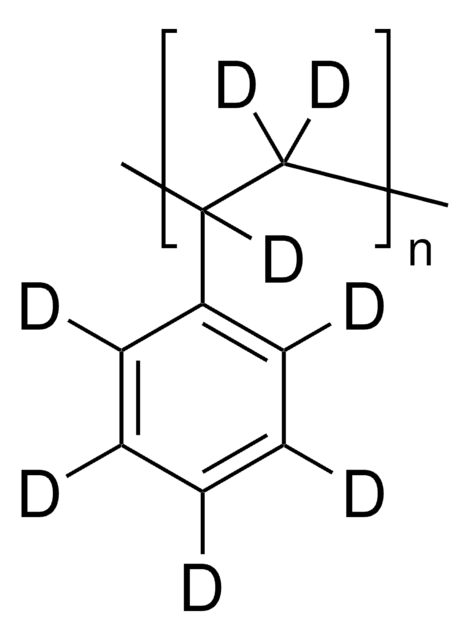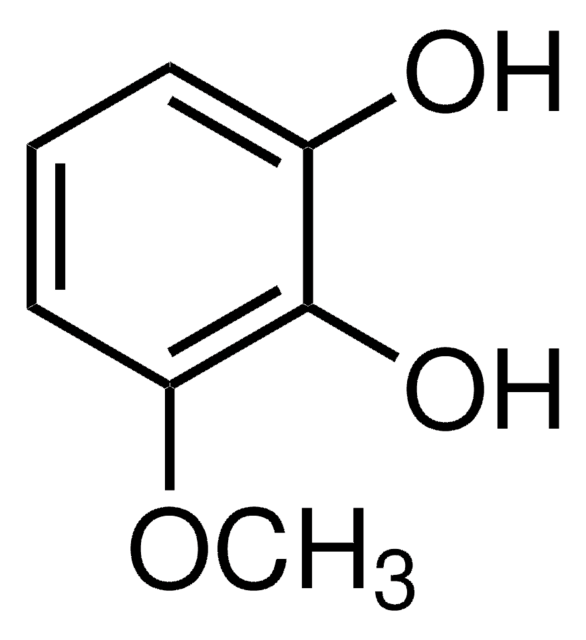19670
4-tert-Butylcatechol
≥97.0% (HPLC)
Synonym(s):
4-(1,1-Dimethylethyl)benzene-1,2-diol, 4-tert-Butylcatechin, 4-tert-Butylpyrocatechol, 4-TBC, p-tert-Butylcatechol
About This Item
Recommended Products
Quality Level
Assay
≥97.0% (HPLC)
bp
285 °C (lit.)
mp
52-55 °C (lit.)
53-58 °C
solubility
methanol: soluble 1 g/10 mL, clear, colorless to slightly yellow
SMILES string
CC(C)(C)c1ccc(O)c(O)c1
InChI
1S/C10H14O2/c1-10(2,3)7-4-5-8(11)9(12)6-7/h4-6,11-12H,1-3H3
InChI key
XESZUVZBAMCAEJ-UHFFFAOYSA-N
Looking for similar products? Visit Product Comparison Guide
General description
Application
- Electrochemical Oxidation of Catechol and 4-tert-Butylcatechol: This study explores the oxidation reactions of catechol and 4-tert-butylcatechol, detailing the electrochemical pathways and potential applications in synthetic chemistry (E Tammari, M Heravi, D Nematollahi, academia.edu).
- Selective Oxidation of 4-tert-butylphenol by Hydrogen Peroxide: Discusses the catalytic performance of titanosilicates in the selective oxidation to 4-tert-butylcatechol, emphasizing improvements in selectivity and yield (RR Talipova et al., Applied Petrochemical Research, 2016 - Springer).
- Barium 5-(tert-butyl)-2,3-dihydroxybenzenesulfonate: This research presents the sulfonation process of 4-tert-butylcatechol, contributing to the development of new derivatives for advanced materials (LG Rubicheva, DA Lukyanov - Molbank, 2022 - mdpi.com).
- UV-AOPs for Efficient Continuous Flow Removal of 4-tert-butylphenol: Compares various advanced oxidation processes for removing contaminants like 4-tert-butylcatechol from water, highlighting the environmental applications (S Mergenbayeva, SG Poulopoulos - Processes, 2021 - mdpi.com).
- The Study on the Degradation of 4-tert-butylphenol by Hydroxyl Radical: This article investigates the degradation pathways of 4-tert-butylcatechol, providing insights into the environmental impact and degradation mechanisms (YL Wu et al., China Environmental Science, 2016 - cabdirect.org).
Signal Word
Danger
Hazard Statements
Precautionary Statements
Hazard Classifications
Acute Tox. 4 Dermal - Acute Tox. 4 Oral - Aquatic Acute 1 - Aquatic Chronic 1 - Eye Dam. 1 - Skin Corr. 1B - Skin Sens. 1
Storage Class Code
8A - Combustible corrosive hazardous materials
WGK
WGK 3
Flash Point(F)
235.4 °F - closed cup
Flash Point(C)
113 °C - closed cup
Personal Protective Equipment
Certificates of Analysis (COA)
Search for Certificates of Analysis (COA) by entering the products Lot/Batch Number. Lot and Batch Numbers can be found on a product’s label following the words ‘Lot’ or ‘Batch’.
Already Own This Product?
Find documentation for the products that you have recently purchased in the Document Library.
Customers Also Viewed
Our team of scientists has experience in all areas of research including Life Science, Material Science, Chemical Synthesis, Chromatography, Analytical and many others.
Contact Technical Service
















